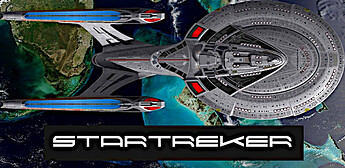Finally, after a long wait, we have reached our finale with this challenge...
The overall consensus is, Linux is not ready for the hardcore gamer, and it most certainly is not ready for VR. The good news however, is that Linux is getting better with gaming every day, however slow, it is getting better.
And just as Linus was saying, once the Steam Deck gets released this year, Linux for gaming will get even better still. But Linux simply cannot compete against Windows when it comes to compatibility in the gaming market.
Some games work right out of the box, while other's do not. I have noticed this as well in my own experience. I find that games that have DRM attached, often do not work at all, regardless of compatibility layers like PROTON.
And while some people often mention to use hacks to get around DRM, those don't always work, and since hacks often involve shady business practices, they often times come with virus's attached. This is why I caution against the use of hacks.
I feel that if a gaming company doesn't care to remove DRM on a 10-year to 20-year old game, that isn't making them anymore profit anyways, then you don't need to play that game. If a developer doesn't care to fix issues to make things more compatible with Linux, then why use software that has no support?
Part of will make gaming better on Linux in the future, is when gaming companies start considering Linux more seriously for gaming development. And I believe that push will probably happen, once the Steam Deck has been released.
Gaming developers will finally then, have incentive to make games for Linux, once their is a console device made for Linux, which is of course, the Valve Steam Deck. So I believe patience is key for those of us in the gaming field.
But I do agree with Linus and Luke, it is very clear to me that Steam with PROTON has much better gaming compatibility then that of Lutris. But keep in mind guys, what is the main point of this entire challenge? Do you remember?
Can gamers who are complete beginners to Linux, install Linux, and begin gaming on it right away without doing a bunch of hacks? And that is where the waters get muddy. The answer is no. Because while for some games, yes that is indeed the case, but not for all of them.
And Lutris requires more configuration then Steam does to get running. Every opinion and fact that Linus and Luke presented over the course of the last couple of months is, can a complete beginner to Linux just install and be ready to go and play games as easy as pie out of the box.
Again, the answer is an obvious NO. Beginners will be forced to comb the internet with their Space Balls giant desert comb, looking for the answers to hopefully fix their issues, and get them going. Beginners are not going to want to do all that.
But the next question is, how much would a beginner willing to go through, if they really don't want to go back to Windows? Cause I feel that if they really truly don't want to go back to Windows, they will force themselves to comb the internet for their answers.
Having said that however, if a beginner is not serious about switching to Linux, and is just checking it out to have something to do, their are very unlikely to stick with Linux, when they realize they need to input 20-commands in terminal to get them going.
Everything that Linus and Luke did, is from the beginner perspective on things. And boy did Linus have a very rough start in his part 1. I still to this day can't believe that happened to him. I never had that happen on POP OS just after install!
Now, I had a different issue with POP OS, but nothing like that. My issue that I had was different, and my issue didn't crop up, until I did something I shouldn't have done, which was almost a year later after the initial install of POP OS.
I learned a lesson. But even though I learned a lesson, I still have no idea why loading that file, caused copies of my home folder directories, to get placed onto my desktop. I still have no idea why that happened, makes 0 sense to me.
But either way, Linux can be a make or break experience for people, weather they are simple a home user, production user, or gaming user, or a mix of both, or all three. Linux either works, or it doesn't work for people.
But from the beginners perspective looking at things, its clear that Linux has further to go in the gaming field of things. OK, when I make a promise I keep it. Which is why I spent the time to post all this. And now that its over, I am finally cut free from making updates here.
Returning to the void where its safer...




 You knew that was coming...
You knew that was coming...

 Bubby!
Bubby!